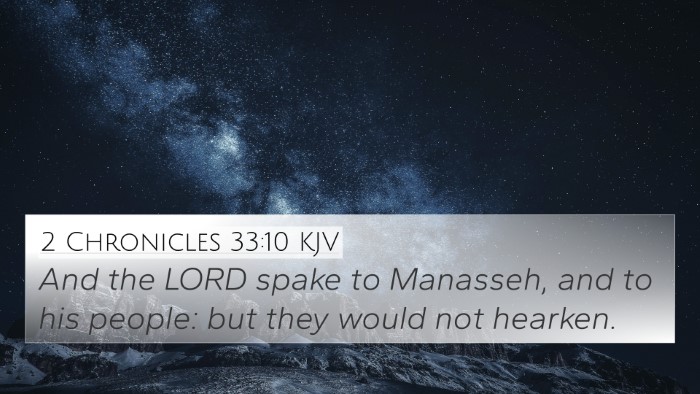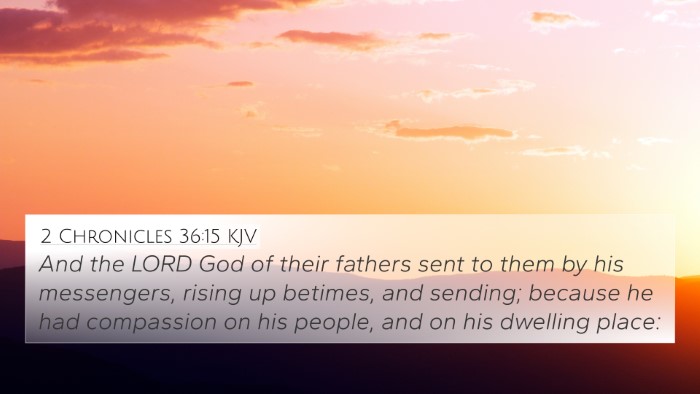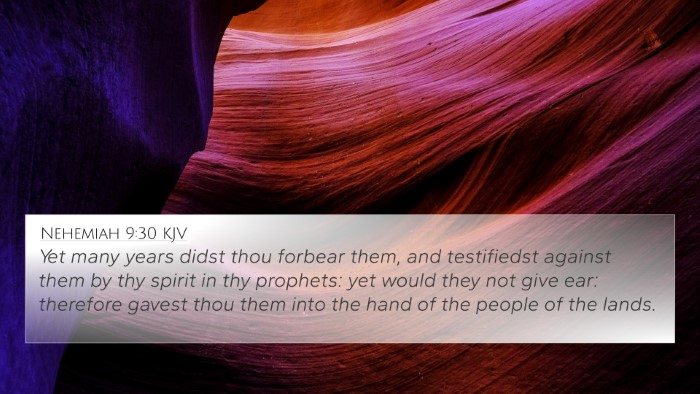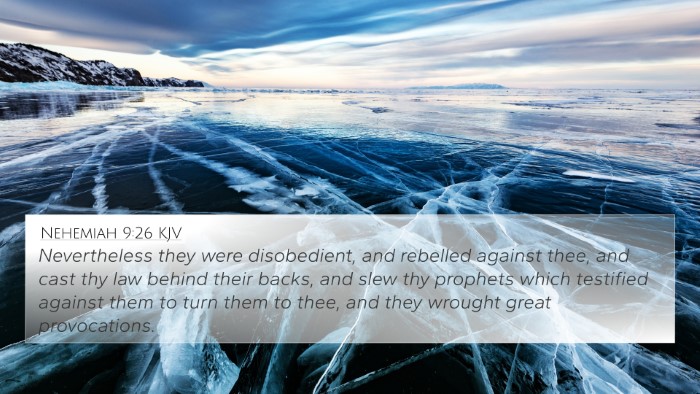Understanding 2 Kings 21:10
Bible Verse: 2 Kings 21:10 - "And the LORD spake by his servants the prophets, saying, 'Because Manasseh king of Judah hath done these abominations, and hath done wickedly above all that the Amorites did, which were before him, and hath made Judah also to sin with his idols:'"
Summary of Meaning
This verse reveals God's judgment expressed through the prophets regarding the sins of Manasseh, the king of Judah. His actions were considered exceedingly wicked, leading the people astray through idolatry—a significant theme in the Old Testament regarding the relationship between God, His people, and the influence of surrounding nations.
Insights from Public Domain Commentaries
- Matthew Henry: Henry emphasizes the gravity of Manasseh's sin, noting that it was not merely the idolatry itself but also the extent of its impact on the nation of Judah. His wickedness surpassed even the Amorites, who were known for their evils. The prophetic warning serves as a call for repentance and a remnant of hope for the people.
- Albert Barnes: Barnes discusses the role of prophets in conveying God's messages. He points out that God's patience has its limits, and this warning underscores impending judgment. The mention of leading Judah into sin highlights the severe consequences of poor leadership and the collective responsibility of a nation to uphold spiritual integrity.
- Adam Clarke: Clarke expands on the phrase "made Judah also to sin," indicating that Manasseh's influence fostered a culture of idolatry. This statement serves as a historical context for understanding the spiritual decline of Israel, illustrating the dangers of forsaking God for idols, which invite divine judgment.
Cross-References and Thematic Connections
This verse can be connected to several other scripture passages that explore the themes of idolatry, divine warning, and leadership failings:
- 2 Chronicles 33:1-9 - A parallel account of Manasseh's reign and his sins.
- Deuteronomy 18:20 - Speaking of false prophets and the severe consequences of leading others astray.
- Jeremiah 32:35 - A condemnation of the Israelites for similar idolatrous practices.
- Ezekiel 22:3 - A call to judgment against the leaders of Israel and their corrupt practices.
- Micah 6:16 - Commentary on the sins of Israel that reflect the same principles at work during Manasseh's reign.
- Romans 1:21-25 - A New Testament reflection on the consequences of turning from God to idolatry.
- Matthew 15:14 - Jesus speaks of the blindness of leaders leading their followers into sin.
Tools for Cross-Referencing
Utilizing Bible cross-reference tools can significantly enhance understanding:
- Bible Concordance: A list of scriptures and their occurrences to find related verses.
- Bible Cross-Reference Guide: A resource for direct connections between verses.
- Bible Cross-Reference System: An organized method for locating parallels across scripture.
Conclusion
2 Kings 21:10 serves as a crucial reminder of the consequences of turning away from God and the severe implications idolatry holds for both leaders and the communities they govern. The prophetic warnings given through God's chosen messengers stand as an eternal testament to the importance of faithfulness and the dangers inherent in leading a community astray.
Further Study
For those interested in exploring more about the inter-Biblical dialogue concerning idolatry and leadership, consider studying:
- Links between the Prophets and Apostolic teachings.
- Comparative study of Pauline epistles on leadership.
- Cross-referencing Psalms with New Testament teachings.







